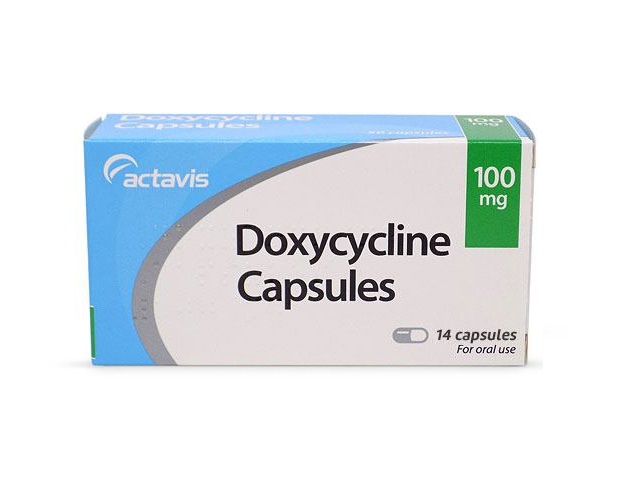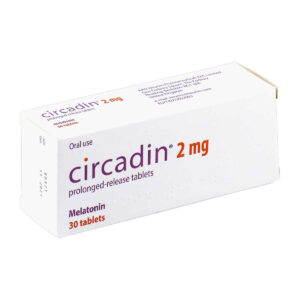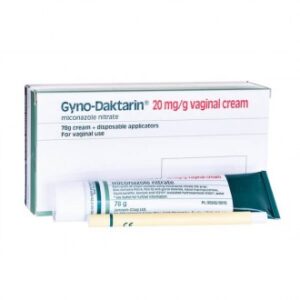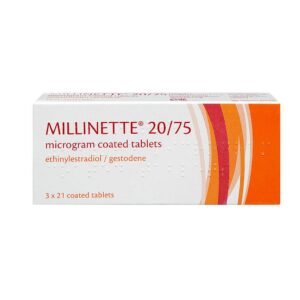Description
What is doxycycline?
Doxycycline is an antibiotic belonging to the tetracycline class, that is used to treat a variety of different conditions including chlamydia. It is also used as a treatment for acne, chest infections, and also used in the prevention of malaria.
How does doxycycline work?
Doxycycline interferes with the bacteria’s ability to produce proteins, which are important for its survival. These proteins are essential for bacteria to multiply and grow, and doxycycline is able to prevent the bacteria from producing these proteins, resulting in the bacteria dying.
Uses / Instructions
Doxycycline capsules should be taken twice a day for 7 days. You should take the capsule with a full glass of water, whilst sitting down or standing (you should not take doxycycline close to bedtime to avoid the possibility of throat irritation). You should avoid taking any indigestion remedies for two hours before or after taking doxycycline, as they can reduce the effectiveness of doxycycline. You should also stop using any supplements that contain iron, calcium, zinc, magnesium or aluminium, as they can also negatively impact the effectiveness of doxycycline. It is important to remember to take your medication regularly and to complete the course to ensure it works properly. Failure to finish the prescribed course of treatment may mean that the bacteria has not been fully killed, and may multiply to form bacteria that has become resistant to doxycycline.
Do I need to take doxycycline with or after food?
Food does not affect the absorption of doxycycline and you can choose to take doxycycline on an empty stomach or after food. One of the possible side-effects of taking doxycycline is that it may make you feel slightly nauseas. If this is the case, you may find it helpful to take doxycycline after a meal.
Can I drink alcohol if I am taking doxycycline?
Moderate alcohol consumption will not necessarily have an impact on the effectiveness of doxycycline, but it can make you feel slightly sick and dehydrated. You should avoid drinking large amounts of alcohol or avoid alcohol consumption altogether for the duration of your treatment if possible. Large amounts of alcohol consumption can reduce the effectiveness of doxycycline in treating chlamydia.
What if I forget to take a dose?
If you forget to take a dose, you should take it as soon as you remember. If you remember when it comes to taking your next dose, do not take two together. It is unlikely that missing one dose will have an effect on your treatment, but you should inform your doctor or pharmacist, and you may need to test for chlamydia a few weeks after having completed treatment, to make sure that it has been cleared. Missing more than one dose may have an impact on the outcome of treatment, and if you think that you might forget to take your medication, you should order azithromycin as it is simpler to take.
Warnings
Talk to your doctor, pharmacist or nurse before taking Doxycycline if any of the following apply to you:
• you are likely to be exposed to strong sunlight or UV light (e.g. on a sun bed). You should avoid exposure to strong sunlight while taking this medicine as your skin may be more sensitive to sunburn than normal.
• you have kidney or liver problems.
• you have myasthenia gravis (a disease which causes unusual tiredness and weakness of certain muscles, particularly in the eyelid).
• you have porphyria (a rare disease of blood pigments)
• you have (or have ever had) systemic lupus erythematosus (an allergic condition that causes joint pain, skin rashes and fever). This condition may be worsened by taking Doxycycline capsules
• you are suspected of having syphilis. Your doctor will continue to monitor you after your treatment has stopped.
• you have diarrhoea or usually get diarrhoea when you take antibiotics or have suffered from problems with your stomach or intestines. If you develop severe or prolonged or bloody diarrhoea during or after using Doxycycline capsules tell your doctor immediately since it may be necessary to interrupt the treatment. This may be a sign of bowel inflammation (pseudomembranous colitis) which can occur following treatment with antibiotics.
• you are taking oral retinoids as there is a higher risk of suffering from increased pressure in your skull (severe headache with change in vision) when taken with Doxycycline capsules. When used for a long duration, Doxycycline capsules may cause infections that cannot be treated with this antibiotic. Your doctor can explain the signs and symptoms of such types of infection.
See patient information leaflet for more details
Side Effects
Like all medicines, this medicine can cause side effects, although not everybody gets them. Stop taking this medicine and tell your doctor immediately if you experience any of the following serious side effects after taking this medicine. Although they are very rare, the symptoms can be severe.
• Sudden wheeziness, difficulty in breathing, chest pain, fever, swelling of eyelids, face or lips, rash or itching (especially affecting the whole body).
• Upset stomach, loss of appetite, severe, persistent or bloody diarrhoea (this may occur up to two or three months after the last dose and may be associated with stomach pain or fever). This may occur after treatment with antibiotics and can be a sign of serious bowel inflammation.
• Fever, swollen lymph nodes or skin rash. These may be symptoms of a condition known as DRESS (Drug Reaction with Eosinophilia and Systemic Symptoms) and can be severe and life-threatening.
• Very severe headache which may be associated with visual disturbances such as blurred vision, double vision or loss of vision. Permanent visual loss has been reported.
• Serious illness with widespread severe blistering of the skin, mouth, eyes and genitals. If any of the side effects listed below occur, contact your doctor as soon as possible
• The Jarisch-Herxheimer reaction which causes fever, chills, headache, muscle pain, and skin rash that is usually self-limiting. This occurs shortly after starting doxycycline treatment for infections with spirochete such as Lyme disease.
• skin that is more sensitive to sunlight than normal (you may get a skin rash, itching, redness or severe sunburn when out in sunlight or after using a sun bed). If this happens stop taking the medicine and tell your doctor.
• Inflammation and/or ulcers of the gullet.
• Blood disorders. These are due to changes in numbers of different cell types in the blood. Symptoms may include tiredness, easy bruising or infections.
• Low blood pressure.
• Increased heart rate.
• Aches in the joints or muscles
• Stomach pain and diarrhoea.
The side effects listed below may go away during treatment as your body adjusts to the medicine. Tell your doctor if any of these side effects continue to bother you:
Common: may affect up to 1 in 10 people
• feeling or being sick
• worsening of a disease called systemic lupus erythematous (SLE). This is an allergic condition which causes joint pain, skin rash and fever headache
• pericarditis (inflammation affecting the heart)
Uncommon: may affect up to 1 in 100 people
• heartburn
• vaginal infection
Rare: may affect up to 1 in 1000 people
• anxiety
• difficulty in swallowing, sore or painful tongue or mouth
• skin reddening (flushing)
• a ringing or buzzing noise in the ear
• soreness and itching of the rectal and/or genital area
• inflammation of the bowel
• bulging fontanelles (soft spot on head) of infants
• increased pressure in the skull (severe headache with change in vision)
• inflammation and damage to the liver
• abnormal liver function tests
• discolouration of the thyroid tissue when given for long periods. The medicine does not impair thyroid function
• loosening of the nail from the nail bed after exposure to the sun
• increased levels of urea in the blood
• yellow skin and eyes (jaundice), inflammation of the pancreas
• upset stomach, loss of appetite, diarrhoea (this may occur up to two or three months after the last dose), stomach pain
• darker patches on your skin.
Not known: frequency cannot be estimated from the available data
• discolouration and/or lack of growth of teeth
Ingredients
The active substance (the ingredient that makes the capsule work) is doxycycline hyclate
For a list of other ingredients see the patient information leaflet of the pack you receive as different manufacturers used different other ingredients.







Reviews
There are no reviews yet.